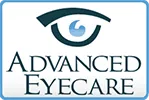
Optometry warnings about the damaging effects of ultraviolet radiation on our eyes have not yet reached the degree of public awareness of that of skin damage. Yet, the sun can be just as damaging upon our eyes with unprotected exposure. Short-term exposure to very bright sunlight can result in a type of sunburn to our eyes regardless of the season. Photokeratiitis -- also known as "snow blindness" and "flash burns" -- is a sunburn to the eye's cornea and conjunctiva, the membranes lining the eyelids and the outermost lining of the eye. Like a skin sunburn, the initial inflammation, pain and redness can last up to 48 hours before subsiding. Treatment such as cold cloths over the eyes and an over-the-counter anti-inflammatory medication can help relieve some of the painful symptoms, but the best treatment is prevention best obtained by wearing sunglasses and a hat with a brim.
The Damage Adds Up
One day on the beach and a couple of days of sore eyes doesn't seem like much, but eye care providers warn that the effect is cumulative and the damage increases with every day of unprotected overexposure. Long-term damage goes beyond crow's feet from squinting in the bright sunlight. Years of unprotected exposure to the sun can result in increased chances of cataracts, damage to the retina, macular degeneration, cancer of the eye itself and cancer of the eyelid. Pterygium, a recurring condition where the conjunctiva grows over the cornea to restrict vision, requires repeated surgeries to keep in check is also common.
Not All Sunglasses Are Equal
Any pair of sunglasses is better than wearing none at all, but not all sunglasses provide the same degree of protection to the eye. Ask your eye care provider for recommendations to fit your lifestyle and your budget.
